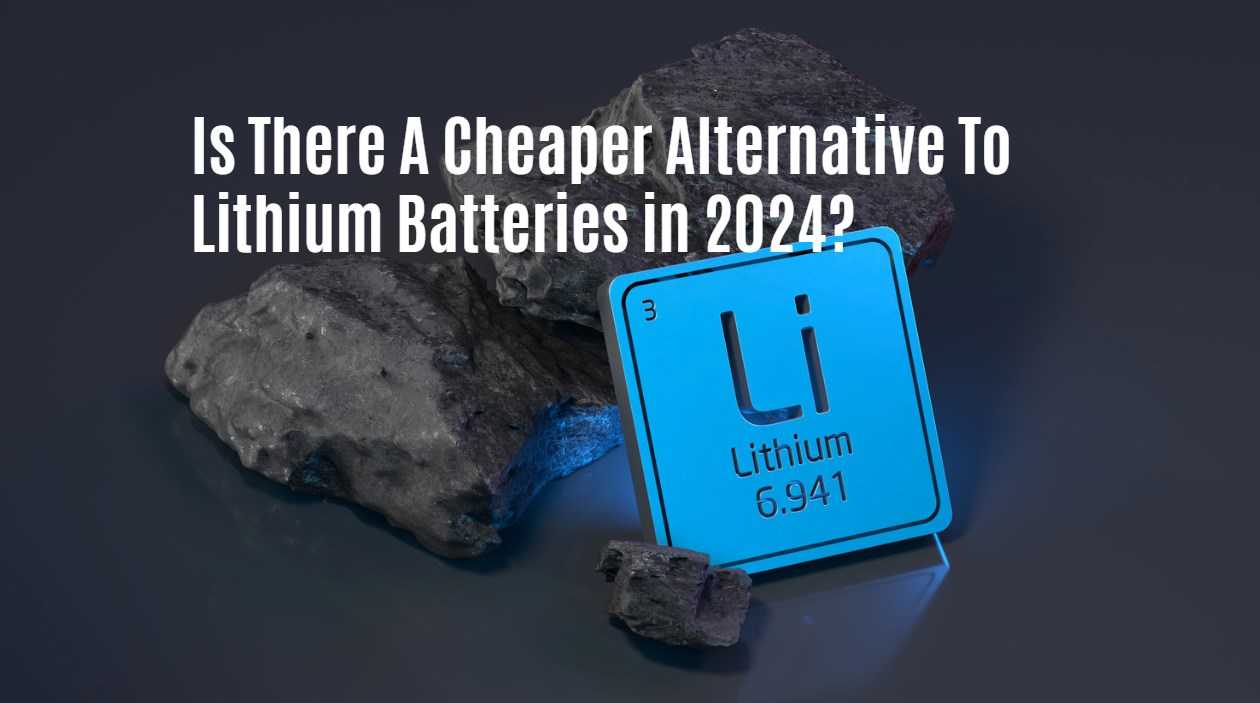As the demand for energy storage solutions continues to rise, many consumers are seeking cheaper alternatives to lithium batteries. While lithium-ion batteries have dominated the market due to their efficiency and longevity, several alternatives are emerging that offer cost-effective solutions without compromising performance.
Exploring Alternatives to Lithium Batteries
- Lead-Acid Batteries
- Overview: Lead-acid batteries have been a staple in energy storage for decades. They are widely used in automotive applications and as backup power sources.
- Cost: Generally, lead-acid batteries are the most affordable option on the market.
- Lifespan: They typically last between 3 to 5 years, with a lower depth of discharge (DoD) compared to lithium options.
- Pros: Lower initial cost and widespread availability.
- Cons: Heavier, less efficient, and shorter lifespan.
- Lithium Iron Phosphate (LiFePO4) Batteries
- Overview: A subtype of lithium batteries, LiFePO4 batteries are known for their safety and thermal stability.
- Cost: While still more expensive than lead-acid, they are cheaper than other lithium-ion variants that use nickel-cobalt-aluminum (NCA) or nickel-manganese-cobalt (NMC) chemistries.
- Lifespan: They can last up to 10 years, offering a good balance between price and longevity.
- Pros: Safer than traditional lithium-ion batteries, longer cycle life.
- Cons: Bulkier and heavier than standard lithium-ion batteries.
- Saltwater Batteries
- Overview: Saltwater batteries use saltwater as an electrolyte, making them an environmentally friendly alternative.
- Cost: Generally competitive with lead-acid batteries but not as widely available.
- Lifespan: They can last up to 10 years, depending on usage conditions.
- Pros: Non-toxic materials and easier recycling processes.
- Cons: Lower energy density and less common in the market.
- Nickel-Cadmium (NiCd) Batteries
- Overview: NiCd batteries have been used in various applications, including power tools and emergency lighting.
- Cost: Typically cheaper than lithium-ion but can be more expensive than lead-acid options.
- Lifespan: Can last around 5 to 7 years, with a good cycle life if maintained properly.
- Pros: Robust performance in extreme temperatures.
- Cons: Environmental concerns due to cadmium content and memory effect issues.
Latest News on Battery Alternatives
Recent trends indicate a growing interest in developing more sustainable battery technologies. Companies are investing in research for alternatives that reduce reliance on lithium while maintaining efficiency. Notable advancements include:
- The increasing production of lithium iron phosphate batteries, which are becoming more affordable due to economies of scale.
- Innovations in saltwater battery technology that enhance performance while remaining eco-friendly.
- Ongoing discussions about regulatory changes aimed at promoting sustainable battery recycling practices.
Redway Expert Comment
“In our experience at Redway Battery, while lithium batteries remain popular for their efficiency, there are viable alternatives worth considering. Lithium Iron Phosphate batteries stand out for their safety and longevity at a relatively lower cost compared to other lithium types. Additionally, lead-acid batteries continue to serve as a budget-friendly option for many applications. As technology advances, we anticipate even more affordable and sustainable solutions emerging in the battery market.”
Wholesale lithium golf cart batteries with 10-year life? Check here.
Conclusion
In summary, while lithium batteries offer numerous advantages, several cheaper alternatives exist that cater to different needs and budgets. Lead-acid, lithium iron phosphate, saltwater, and nickel-cadmium batteries each present unique benefits and drawbacks. By evaluating your specific requirements—such as cost, lifespan, and application—you can make an informed decision on the best battery solution for your needs in 2024.





